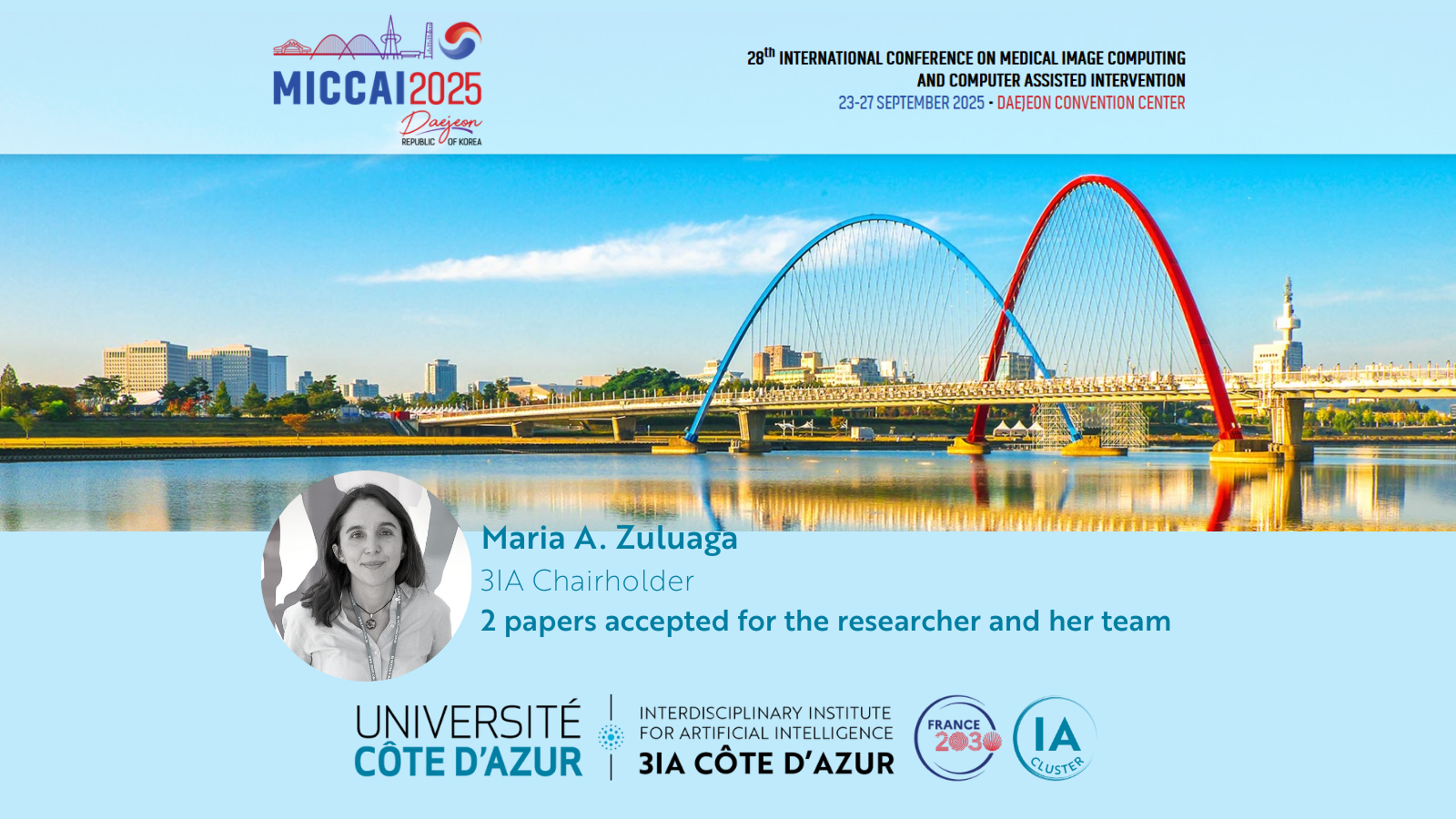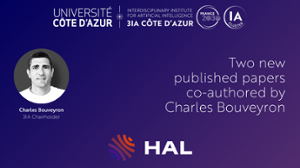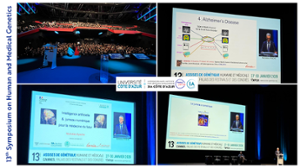Published on September 22, 2025
–
Updated on September 23, 2025
Dates
from September 23, 2025 to September 27, 2025
Location
Daejon, Republic of Korea

The Institute is very proud to announce that two papers cosigned by Maria A. Zuluaga have accepted at MICCAI 2025.
➊ “One-shot active learning for vessel segmentation” (Early-acceptance paper)
By Daniele Falcetta (Ph.D. student, EURECOM), Hava Chaptoukaev (3IA Alumni), Francesco Galati (3IA Alumni), Maria A. Zuluaga (3IA Chairholder and Assistant Professor, EURECOM)
Abstract: Vessel segmentation is crucial for analyzing brain vasculature and understanding cerebral functions and disease mechanisms. Current deep-learning models for segmenting blood vessels within brain images are supervised and depend on extensive labeled data, which requires expert annotation and is both time-consuming and resource-intensive. To address these challenges, we propose Vessel-Dictionary Selection Net (V-DiSNet), a one-shot active learning (OSAL) framework specifically designed for vessels that can be used to select a small, representative set of informative and diverse samples for expert annotation and training, given an unlabeled dataset in a single iteration. The selection process involves sampling from a latent space designed by leveraging the recurrent properties of brain vessel patterns. Specifically, we combine dictionary learning with k-means clustering to learn a latent representation integrating fundamental basis elements representing recurrent vessel features such as shape, connectivity, and structures. We experimentally demonstrate the effectiveness of our method on three publicly available 3D Magnetic Resonance Angiography datasets, showing that V-DisNet consistently outperforms random sampling and other state-of-the-art OSAL methods in terms of standard vessel segmentation metrics.
Learn more
➋ “VesselVerse: A Dataset and Collaborative Framework for Vessel Annotation” (early-acceptance paper / Spotlight oral)
By Daniele Falcetta, Vincenzo Marciano (3IA Ph.D. student, EURECOM), Kaiyuan Yang (Associate Professor, Rice University), Jon Cleary (Adjunct Senior Lecturer BMEIS & Consultant Neuroradiologist, GSTT), Loïc Legris (MD, Neurologist, CHU Grenoble), Massimiliano Domenico Rizzaro (Neurosurgery Resident, University of Milan), Ioannis Pitsiorlas (Ph.D. student, EURECOM), Hava Chaptoukaev, Benjamin Lemasson (Research Fellow, Neuroimagerie Grenoble Institut Neurosciences), Bjoern Menze (Full Professor, Zürich Department of Quantitative Biomedicine), Maria A. Zuluaga
Abstract: This paper is not about a novel method. Instead, it introduces VesselVerse, a large-scale annotation dataset and collaborative framework for brain vessel annotation. It addresses the critical challenge of data annotation availability in supervised learning segmentation and provides a valuable resource for the community. VesselVerse represents the largest public release of brain vessel annotations to date, comprising 950 annotated images from three public datasets across multiple neurovascular imaging modalities. Its design allows for multi-expert annotations per image, accounting for variations across diverse annotation protocols. Furthermore, the framework facilitates the inclusion of new annotations and refinements to existing ones, making the dataset dynamic. To enhance annotation reliability, VesselVerse integrates tools for consensus generation and version control mechanisms, enabling the reversion of errors introduced during annotation refinement. We demonstrate VesselVerse's usability by assessing inter-rater agreement among four expert evaluators.
Learn more
Learn more about MICCAI 2025
By Daniele Falcetta (Ph.D. student, EURECOM), Hava Chaptoukaev (3IA Alumni), Francesco Galati (3IA Alumni), Maria A. Zuluaga (3IA Chairholder and Assistant Professor, EURECOM)
Abstract: Vessel segmentation is crucial for analyzing brain vasculature and understanding cerebral functions and disease mechanisms. Current deep-learning models for segmenting blood vessels within brain images are supervised and depend on extensive labeled data, which requires expert annotation and is both time-consuming and resource-intensive. To address these challenges, we propose Vessel-Dictionary Selection Net (V-DiSNet), a one-shot active learning (OSAL) framework specifically designed for vessels that can be used to select a small, representative set of informative and diverse samples for expert annotation and training, given an unlabeled dataset in a single iteration. The selection process involves sampling from a latent space designed by leveraging the recurrent properties of brain vessel patterns. Specifically, we combine dictionary learning with k-means clustering to learn a latent representation integrating fundamental basis elements representing recurrent vessel features such as shape, connectivity, and structures. We experimentally demonstrate the effectiveness of our method on three publicly available 3D Magnetic Resonance Angiography datasets, showing that V-DisNet consistently outperforms random sampling and other state-of-the-art OSAL methods in terms of standard vessel segmentation metrics.
Learn more
➋ “VesselVerse: A Dataset and Collaborative Framework for Vessel Annotation” (early-acceptance paper / Spotlight oral)
By Daniele Falcetta, Vincenzo Marciano (3IA Ph.D. student, EURECOM), Kaiyuan Yang (Associate Professor, Rice University), Jon Cleary (Adjunct Senior Lecturer BMEIS & Consultant Neuroradiologist, GSTT), Loïc Legris (MD, Neurologist, CHU Grenoble), Massimiliano Domenico Rizzaro (Neurosurgery Resident, University of Milan), Ioannis Pitsiorlas (Ph.D. student, EURECOM), Hava Chaptoukaev, Benjamin Lemasson (Research Fellow, Neuroimagerie Grenoble Institut Neurosciences), Bjoern Menze (Full Professor, Zürich Department of Quantitative Biomedicine), Maria A. Zuluaga
Abstract: This paper is not about a novel method. Instead, it introduces VesselVerse, a large-scale annotation dataset and collaborative framework for brain vessel annotation. It addresses the critical challenge of data annotation availability in supervised learning segmentation and provides a valuable resource for the community. VesselVerse represents the largest public release of brain vessel annotations to date, comprising 950 annotated images from three public datasets across multiple neurovascular imaging modalities. Its design allows for multi-expert annotations per image, accounting for variations across diverse annotation protocols. Furthermore, the framework facilitates the inclusion of new annotations and refinements to existing ones, making the dataset dynamic. To enhance annotation reliability, VesselVerse integrates tools for consensus generation and version control mechanisms, enabling the reversion of errors introduced during annotation refinement. We demonstrate VesselVerse's usability by assessing inter-rater agreement among four expert evaluators.
Learn more
Learn more about MICCAI 2025


